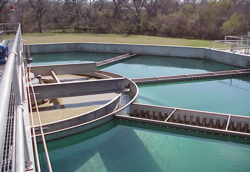New Jersey Water Bank (NJWB) Program
(Wastewater Treatment, Stormwater Management and Combined Sewer Overflow)
PURPOSE OF FUNDING
- Provides low-interest loans for the construction of a variety of water quality protection and human health measures, including wastewater treatment facilities, stormwater and nonpoint source management facilities, and potable water facilities. Principal Forgiveness and grants are available for borrowers meeting disadvantaged community criteria; Principal Forgiveness is also available for high-priority projects.
- The Financing Program also provides loans for activities such as open space land purchase and conservation, remedial action activities (including brownfields) and well sealing.
APPLICATION
www.njib.gov/nj/Setup+H2LOans+Account.19
APPLICATION DEADLINE
Rolling
APPLICATION CONTACT
waterbankinfo@njdepwptest.net
SOURCE OF FUNDING
The New Jersey Department of Environmental Protection and the New Jersey Environmental Infrastructure Bank
STATUTORY CITATION
P.L. 1985, c. 329 N.J.S.A. 58:11B1 et seq. and P.L. 1992 c.88.
WHO IS ELIGIBLE
- Municipalities
- Counties
- Sewerage or utility authorities
- Joint meetings
- Improvement authorities
- Local government units constructing new or improving existing wastewater, stormwater or nonpoint source management facilities
- Private Water Utilities
QUALIFICATIONS REQUIRED FOR CONSIDERATION
- Eligibility is determined according to the ranking criteria of the Federal Priority System developed each year by the DEP.
- Each project is evaluated and point scores are assigned.
- Projects are certified for funding based on list rank, amount of available funds, and compliance with requirements and deadlines for planning, design and application.
LOAN LIMITATIONS
Eligible entities must:
- Set up an h2loans account, and upon the eligibility determination, the project will be ranked and placed on the Project Priority List;
- Send in a commitment letter and Submit Clean Water Letter of Intent (Application Step 3 – Environmental Planning Document) and;
- Satisfy the planning, design and application deadlines and requirements Submit Clean Water Loan Application (Application Step 4 – Engineering Design and Specifications).
APPLICATION PROCEDURES
The borrower can apply or submit documentation year-round using NJIB’s online H2lOANS (https://www.h2loans.com).
REVIEW PROCESS
For Clean Water, the Priority System ranking methodology considers:
- The type of project proposed
- The existing water uses of the receiving waterbody
- Public health impacts and other factor
SUCCESS STORIES
New Jersey Infrastructure Bank (njib.gov)
Improving a Program That Works: Prioritizing New Jersey Water Bank Projects in Disadvantaged Communities – Jersey Water Works
ADDITIONAL INFORMATION
https://nj.gov/dep/wiip/index.html
FOR MORE INFORMATION
waterbankinfo@njdepwptest.net
